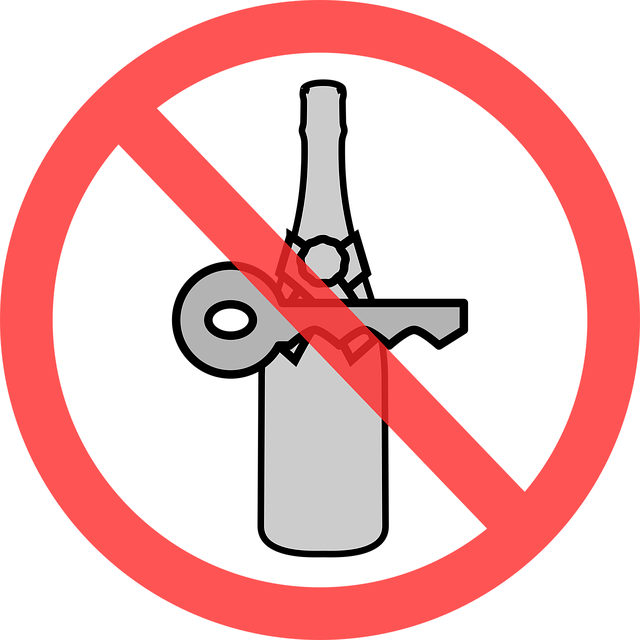Ride-sharing drivers play a crucial role in Teen Driver Rehabilitation by offering structured learning and practice under supervision, ensuring passenger safety through strict adherence to protocols and advanced technology. These programs teach defensive driving, hazard perception, and risk mitigation, empowering teens to make smart choices. Integrating real-time monitoring tools, data analytics, and AI algorithms enhances accountability, detecting unsafe practices and reducing accidents. Effective rehabilitation focuses on teaching technical skills, ethical considerations, and emotional intelligence, fostering safer habits and a culture of reliable ride-sharing services.
In today’s digital era, ride-sharing has become a ubiquitous mode of transportation. However, ensuring driver accountability is paramount for passenger safety and overall service quality. This article delves into critical aspects of ride-sharing driver accountability, including teen driver safety and rehabilitation programs, the role of technology in monitoring drivers, and enhancing training for responsible driving behavior. By exploring these key areas, we aim to highlight strategies that foster a safer and more reliable ride-sharing environment, with a specific focus on Teen Driver Rehabilitation.
- Understanding Ride-Sharing Driver Accountability
- Teen Driver Safety and Rehabilitation Programs
- The Role of Technology in Driver Monitoring
- Enhancing Training for Responsible Driving Behavior
Understanding Ride-Sharing Driver Accountability

Ride-sharing drivers play a pivotal role in ensuring passenger safety, comfort, and security. Understanding accountability among these drivers is essential, especially as their actions directly impact user experiences. In the context of teen driver rehabilitation, where young individuals are learning to navigate roads responsibly, ride-sharing services offer a unique opportunity for structured learning and practice under supervised conditions.
Driver accountability involves adhering to safety protocols, maintaining clean vehicles, and providing professional service. It requires drivers to be well-versed in emergency procedures, regularly inspect their vehicles, and maintain good communication with passengers. Moreover, it encompasses ethical considerations, such as refusing inappropriate requests or displaying unprofessional behavior, ensuring a positive and safe environment for all users, particularly teenagers who are still developing critical thinking and decision-making skills behind the wheel.
Teen Driver Safety and Rehabilitation Programs

Teen Driver Safety and Rehabilitation Programs play a crucial role in addressing the unique challenges faced by young drivers. With their growing independence and often limited experience, teens require structured support to navigate the complexities of road safety. These programs are designed to provide education, training, and mentorship tailored specifically for adolescents behind the wheel. Through interactive workshops, practical driving sessions, and peer-to-peer learning, Teen Driver Rehabilitation initiatives aim to foster responsible driving habits and build resilience on the roads.
By focusing on risk mitigation, these programs teach teens about defensive driving techniques, hazard perception, and the consequences of risky behavior. They also offer a safe environment for open discussions about peer pressure, impulse control, and decision-making under stress—all factors that contribute to teen driver safety. The ultimate goal is to empower young drivers with the skills needed to make smart choices, react quickly, and stay safe on the roads, ultimately reducing the risk of accidents and promoting responsible transportation habits for life.
The Role of Technology in Driver Monitoring

Advancements in technology have significantly transformed ride-sharing services, particularly in enhancing driver accountability. Modern systems employ sophisticated monitoring tools to track driver behavior in real-time. These technologies play a pivotal role in ensuring safety, especially during Teen Driver Rehabilitation programs. By leveraging data analytics and AI algorithms, platforms can detect erratic driving patterns, speeding, or distractions, immediately flagging potential hazards.
Through the integration of cameras, sensors, and advanced software, ride-sharing companies can provide a layer of oversight that encourages responsible driving. This technology not only helps in identifying at-risk drivers but also serves as a deterrent, promoting safer practices among participants in Teen Driver Rehabilitation programs, ultimately contributing to a reduction in accidents and enhancing overall road safety.
Enhancing Training for Responsible Driving Behavior

Effective ride-sharing driver accountability heavily relies on enhancing training programs for responsible driving behavior, especially among teen drivers who are still in the process of rehabilitation. Comprehensive training should cover not just technical skills but also ethical considerations and emotional intelligence behind the wheel. By teaching young drivers to anticipate and react to various road scenarios, understand the impact of their actions on passengers, and maintain a professional demeanor despite stress or challenging situations, we can foster safer and more accountable driving habits.
This process involves incorporating real-world simulations, peer mentoring, and ongoing feedback mechanisms into training curricula. Teen Driver Rehabilitation programs that prioritize these elements empower novice drivers to make split-second decisions responsibly, ensuring the safety of all passengers and road users. Ultimately, continuous learning and development in this area not only contribute to reducing accidents but also promote a culture of safe and reliable ride-sharing services.
Ride-sharing services have transformed transportation, but ensuring driver accountability is crucial. By implementing comprehensive programs like teen driver rehabilitation and leveraging technology for monitoring, we can foster safer rides. Enhanced training focused on responsible driving behavior is key to mitigating risks and maintaining public trust in this evolving industry. In the pursuit of a more accountable ride-sharing ecosystem, continuous improvement through data, education, and support services will ultimately benefit both drivers and passengers alike.






